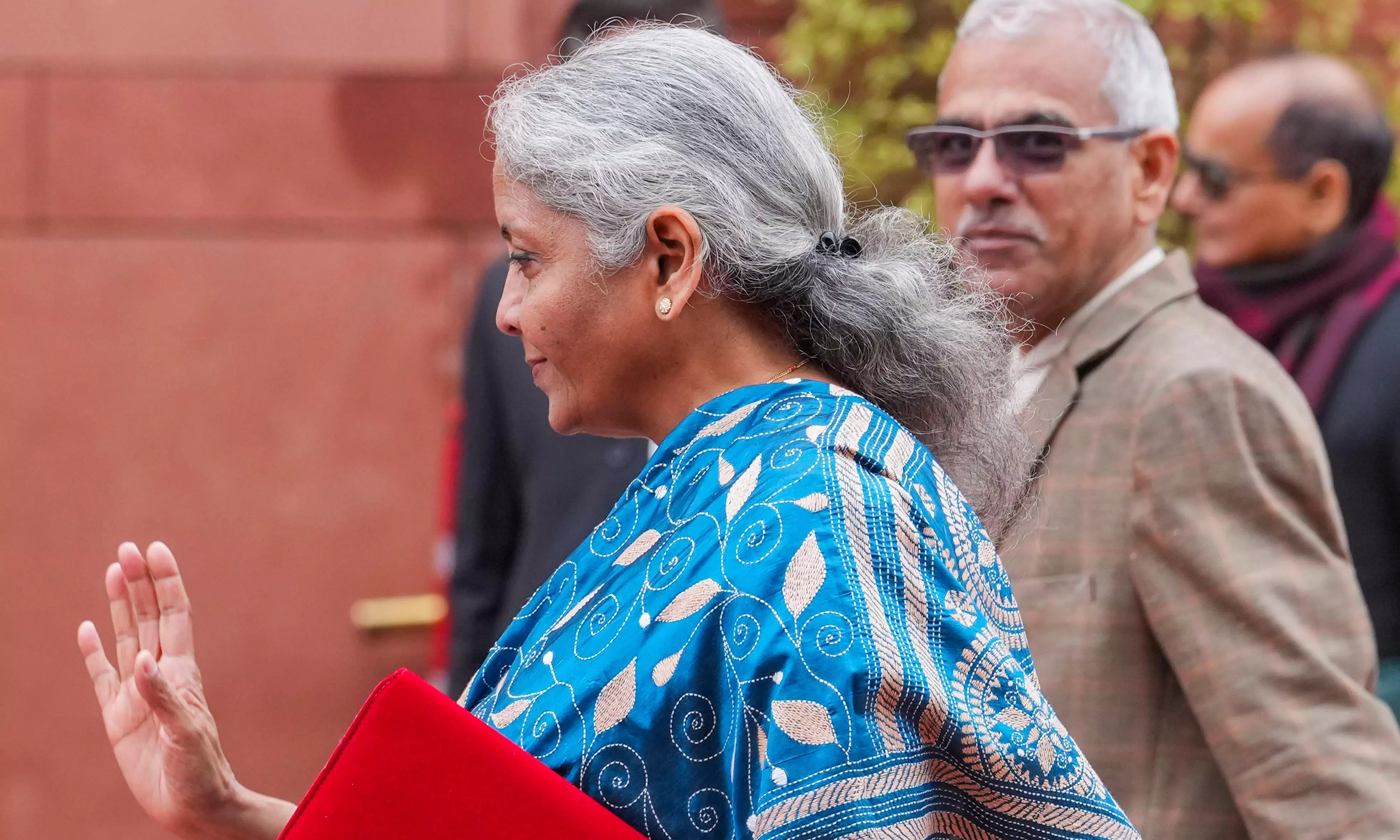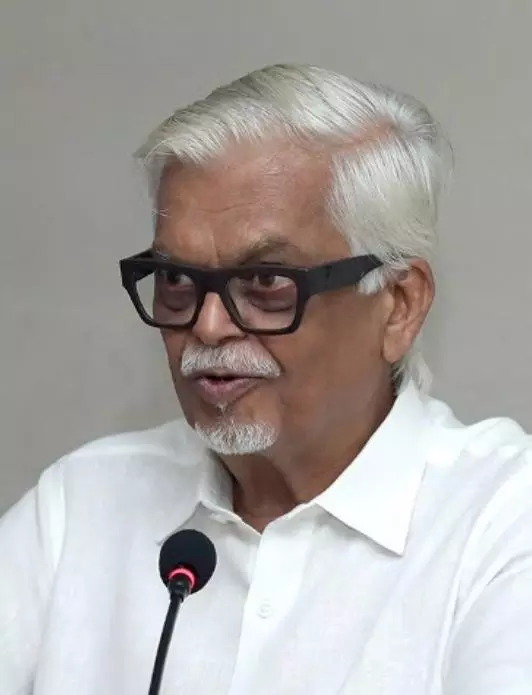Sanjaya Baru | Modi’s economic, political strategy is Ram bharose
Political outcomes seem increasingly detached from economic realities, raising concerns among citizens

Much has been made of how a fiscally prudent Nirmala Sitharaman, the Union finance minister, has resisted populism and has not used the Union Budget that she presented last Thursday to win the next general election. Any political assessment of budgetary strategy would show that Prime Minister Narendra Modi does not expect his finance minister to help him win the next election. That task has been handed over to Lord Ram and other gods.
Moreover, Prime Minister Modi's strategy has been and continues to be one of focusing on the distant future and the distant past rather than on this fiscal or the next. All will be well in “Amrit Kaal”. The mantra is quite simple. India had a golden past and will have a golden future. Don’t worry about the present.
Finance ministers normally worry about the present. If Ms Sitharaman did so she would have had something to say about employment. Even as Mr Modi and Ms Sitharaman were seeking praise for India being the world’s fastest growing large economy, which is quite frankly a minimum qualification for a country that hopes to catch up with China, scores of young men were eagerly and desperately queuing up in Uttar Pradesh and Haryana for employment in Israel.
Having banished the Palestinian labourers from construction sites across Israel, the Zionist government of Benjamin Netanyahu is desperately looking for imported labour. However, the problem for Mr Netanyahu is that he will not employ the labour that is readily available from his neighbourhood. The reason is very simple. The Zionist Mr Netanyahu does not wish to allow any Muslim worker from any of his Islamic neighbours to enter his country. So, what better than to reach out to his friend Narendra Modi, who has been facing the problem of inadequate employment growth, to send Hindu labourers across. The fact that hundreds of young Hindu men from the two BJP-ruled states are willing to go to a conflict-ridden zone shows their desperation. It is therefore not surprising that the state of unemployment in India doesn’t figure in Ms Sitharaman’s optimistic survey of the economy. Of what use is India being the world’s fastest growing economy when the unemployment rates are so high?
When asked why they were willing to risk death by going to Israel, a labourer told a journalist that it was a choice between dying of hunger in India or risking death due to war in Israel. Similar replies were given in Gujarat by persons who tried to illegally cross into the US and were apprehended en route and sent back home.The nature of the Indian growth performance has been widely referred to as “K-shaped”, with the rich doing well for themselves and the poor left to their own devices. That, in many ways, sums up the five years of Ms Sitharaman’s tenure in North Block. Even if we attribute the K-shape to the Covid-19 pandemic, over the Modi decade as a whole employment has remained a challenge.
The Budget numbers have already been scrutinised in detail in the media and many have complimented Ms Sitharaman for ensuring fiscal discipline and not resorting to populism. Two points are in order in this context. First, the government continues to provide subsidies to Indian business in the name of “Atma Nirbharata” and Make In India. But all the crores that have been pocketed by Indian business in the name of production-linked incentives (PLI scheme) have not been converted into employment. Hence, the PLI subsidy is a subsidy for the non-risk-taking businessmen. The government has also increased the fertiliser subsidy while at the same time not increasing adequately MGNREGA funding. There are several other such biases in government spending that are bound to accentuate the K-shaped recovery.
In my previous column in this newspaper, I had complimented Ms Sitharaman for stepping up public investment. She had hoped that it would “crowd-in” private investment. In her Budget speech this year she has indicated that she would taper off public investment in the hope that private investment would henceforth sustain the growth process. But then, the increase in public investment over the past two years has not contributed to any significant increase in private investment. And, there is no reason now to assume that private investment would suddenly perk up. So, it is not clear on what basis the finance minister’s optimism about future growth is based. Private investment is a function of expectations and despite the economy growing close to seven per cent, expectations about consumer demand remain bearish. Much of the growth in the recent past has created infrastructure assets. This is action on the supply side. What about demand?
While businessmen are happy to publicly praise the government, most corporate boardrooms remain sceptical about demand and the hope that public spending would increase demand is not materialising to the extent hoped for.
A second point that has been made about the government’s budgetary strategy is that it has been fiscally conservative in an election year. The BJP does not expect to win on the back of its spending programmes alone. Incidentally, it has not been as conservative as some imagine. There are various spending programmes aimed at the specific constituency that the BJP is targeting, but Mr Modi expects that victory will be delivered to him by Lord Ram. With religion yielding political dividends, the role of fiscal incentives has been reduced, not eliminated.
The Union Budget is, at the end of the day, both a financial and a political statement. It is interesting that in the recent past a large part of the media commentary is dominated by financial analysts, investment managers and economists working in banks and consulting firms. Their view is quite understandably shaped by the interests of their own firm as well as those of the corporate sector as a whole. They would also be careful not to upset anyone in the government. Hence, much of their analysis steers clear of any wider political assessment of the budgetary strategy.
What should worry citizens is the growing perception among political strategists that political outcomes are independent of economic outcomes. If religious sentiment is deployed to secure political benefit, fiscal policy becomes marginal.
The writer is an author, a former newspaper editor and adviser to Prime Minister Manmohan Singh. He has recently edited The Importance of Shinzo Abe: India, Japan and the Indo-Pacific.

